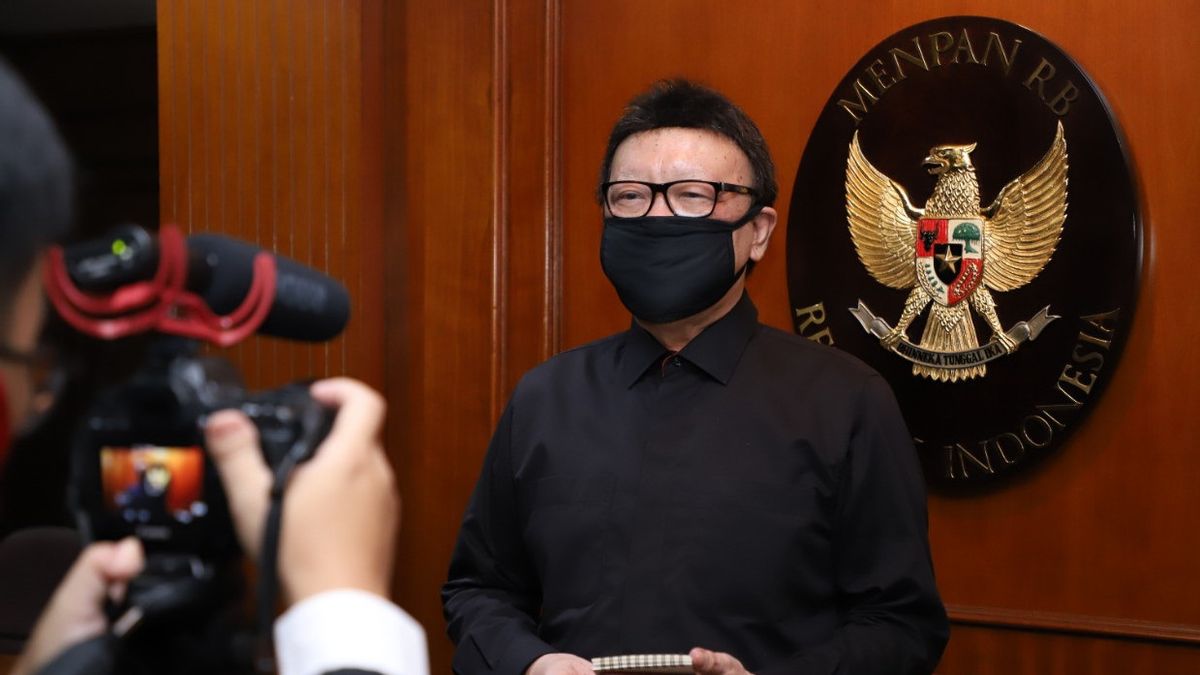JAKARTA - The Minister for Administrative Reform and Bureaucratic Reform (Menpan RB), Tjahjo Kumolo again issued a circular regarding the regulation of the work system for the state civil apparatus (ASN) during the COVID-19 Pandemic.
This circular letter is to reduce or reduce the risk of transmission of COVID-19 in the work environment of government agencies.
This letter regulates the number of civil servants who work from home and in the office. This regulation was made and adjusted to the development of the conditions of COVID-19 transmission in each area.
The regulation is contained in the Minister of PANRB Circular No. 67/2020 dated 4 September 2020 concerning Amendments to the Circular of the Minister of PANRB No. 58/2020 concerning the Work System of State Civil Servants in the New Normal Order.
"Changes to this circular letter are carried out by taking into account the status of the spread of COVID-19 in Indonesia," said Tjahjo Kumolo in an official statement, Jakarta, Monday, September 7.
Tjahjo said, for areas prone to COVID-19, ASN entry to the office was only allowed 20 percent. While those at moderate risk are 75 percent. All ASNs that are allowed to come to the office are areas not affected by COVID-19. All will be regulated by the Personnel Development Officer (PPK).
"For government agencies in the medium risk category, the number of ASNs who carry out WFO (work form offices) is at most 50 percent. Meanwhile, for those with high risks, the number of employees with WFO is at most 25 percent," said Tjahjo Kumolo.
With this circular, Tjahjo Kumolo hopes that all ASNs in any agency can apply it. In addition, ASN is also expected to become a pioneer and role model for society in implementing the new normal order.
"ASN must be an example in their respective environment by always adhering to health protocols, using masks, washing hands regularly, and maintaining distance," he said.
SE Minister of PANRB previously, namely No. 58/2020 is still valid and is an integral part of SE No. 67/2020.
The English, Chinese, Japanese, Arabic, and French versions are automatically generated by the AI. So there may still be inaccuracies in translating, please always see Indonesian as our main language. (system supported by DigitalSiber.id)










